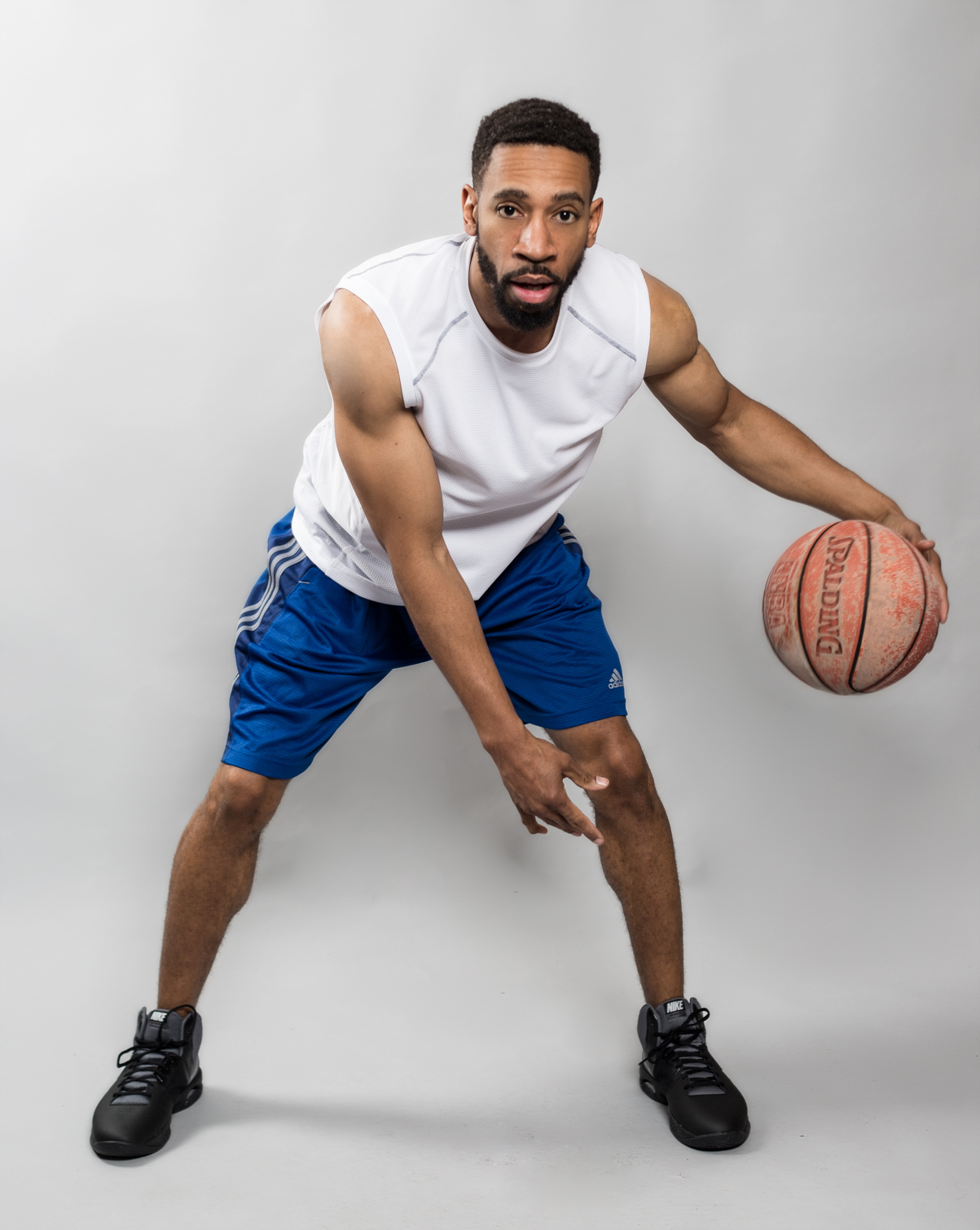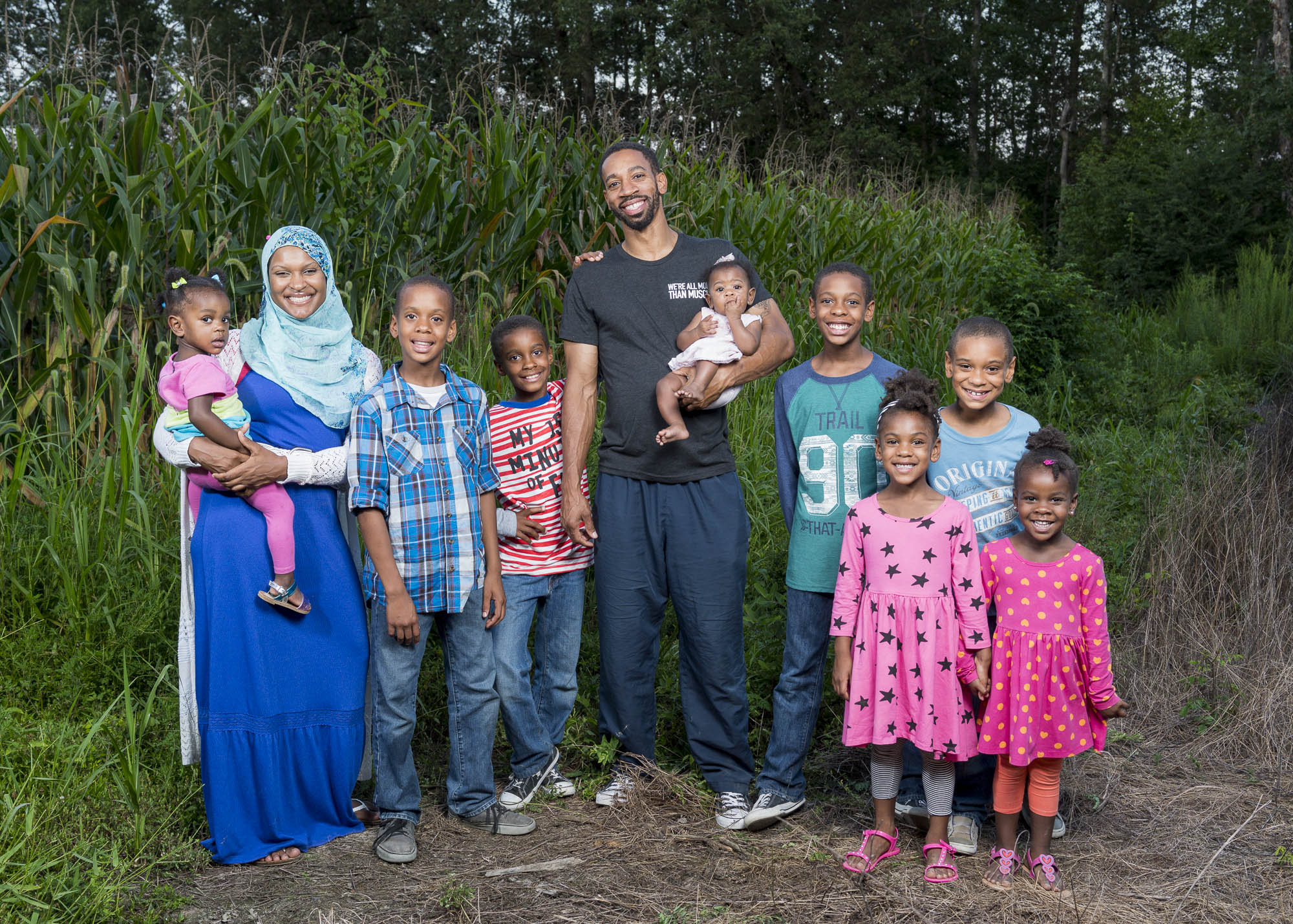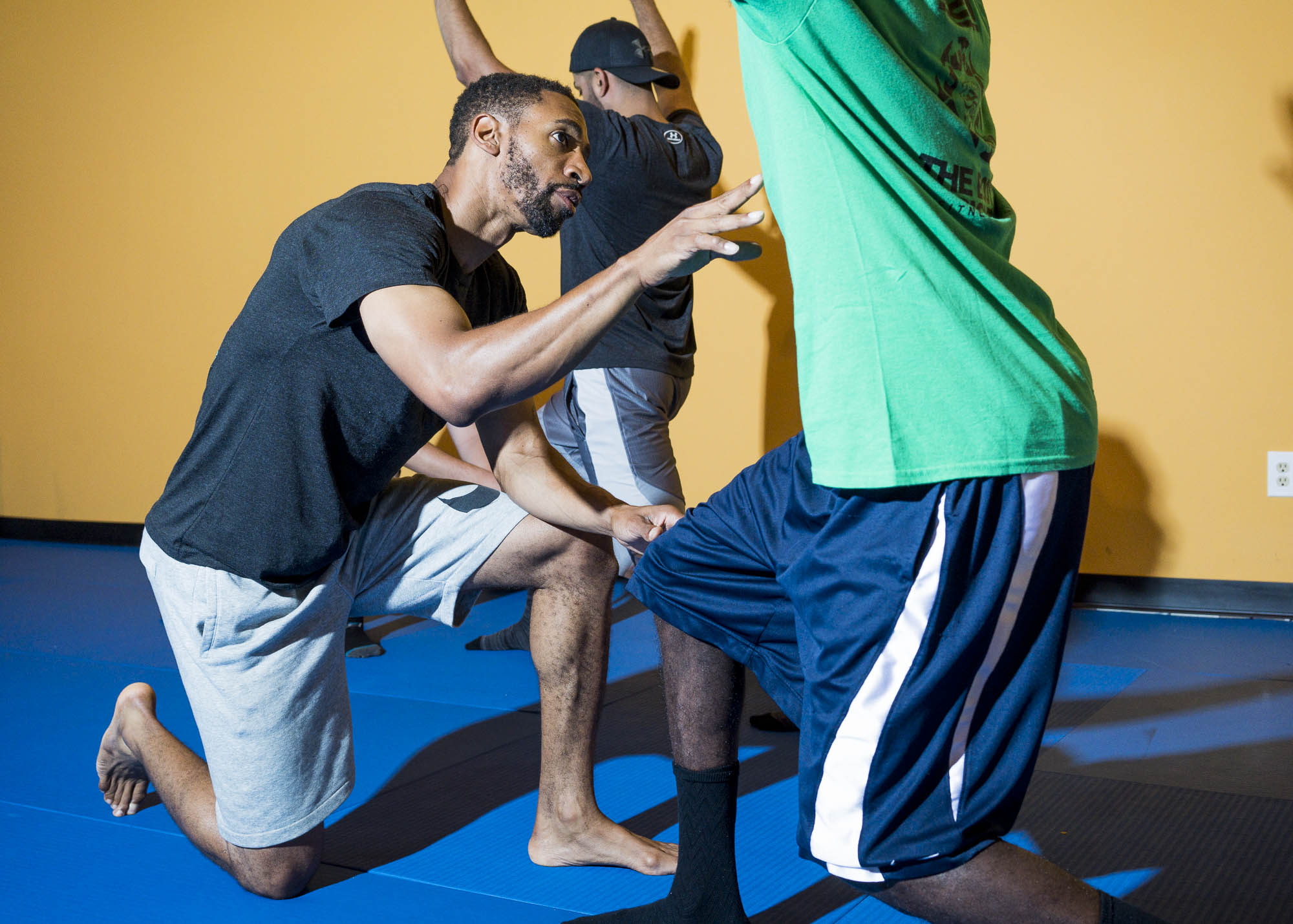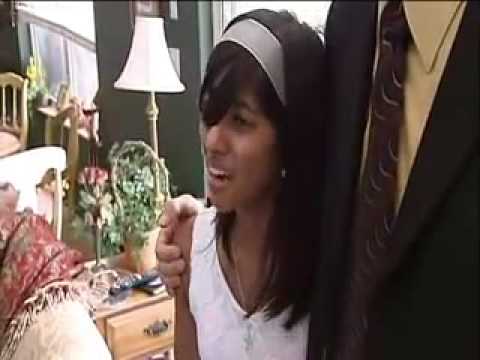“Hold it.”
“Hold it.”
“Ten more seconds….”
“Done!”
Participants in the Ramadan boot camp class collapse onto their mats after holding the plank position. Omari Grey (known affectionately as “Coach O” to his clients) pushes his class to achieve at least a two minute plank – a strong core is the basis of good fitness.
altM Assistant Editor, Najiyah Khan, sat down with Coach O after their class; he shared his life experiences and his ongoing efforts to guide the community to improve its overall health and fitness.

Please share your background with our readers.
I grew up in Long Island, New York. I left there at age 12 and moved to Virginia where I finished up middle school and high school. I’ve played basketball since age 7. My parents sent me to basketball camps and I participated in travel leagues. My father focused on developing me physically and my mom, who was first a teacher then a principal, made education a major component of my upbringing. She was the reason I became a teacher. As I neared the end of high school, basketball coaches of multiple universities, including Harvard, tried to recruit me. Harvard wanted me to attend a year of prep school before enrolling. I wanted to start right away so I enrolled at Towson University (in Maryland) on a basketball scholarship.
I went through the lowest point in my life there. It was a wake up call for me. I spent two years at Towson and I was ostracized by my teammates. My arrogance got the best of me. I was pampered in middle school and high school; I felt I was God’s gift to basketball and to find out in college that I really wasn’t was a painful realization. So in my second year I got kicked off the team and lost my basketball scholarship – that was my lowest point. That was where I found God; it was a paradigm shift. I went from wanting to be something in the world to figuring out what is my purpose in life. I graduated university and converted to Islam. I married my wife one month after graduation and we moved out of the country soon after-we were overseas for ten years. I grew up in those ten years working as a teacher. I became a certified teacher by earning my Masters from the University of Sunderland in London. That gave me an international certification that propelled me to gain employment in multiple countries. The experiences I had opened me up to a whole new world in many different countries – Yemen, Kuwait, and Jordan. Seeing these countries through the eyes of a resident and not as a tourist gave me greater understanding and appreciation.
My wife and I along with our six kids, moved to Northern Virginia about 4 years ago.
Why is exercise and clean eating a major component of your lifestyle? How do you feel it relates to Islam?
Clean eating relates very much to Islam – the Prophet saw somebody who had a big belly and he said that would look better on someone else. Another hadith says the worst vessel to fill is your stomach.
Recognize that this is a prophetic tradition – we have this connection to health, fitness and wellness.
The benefits of fasting are becoming mainstream. Now we see the culture/country on this wave of intermittent fasting as a way to build muscle.
What training do you incorporate in your personal and group workout sessions?
HIIT – high intensity interval training. It speeds up the metabolism. People have to build up to this level; there’s a progression to HIIT. Also, body weight training – mastering your body through yoga, gymnastics, Pilates. Whatever works your core.
What challenges have you overcome to reach this current stage in your life?
Being married for 16 years and 9 kids. It takes work and sacrifice. In Amman, Jordan we didn’t have running water for days at a time and limited food. That lifestyle, which could have been much worse, was challenging but still made me more grateful for the little we did have.
How do you and your wife incorporate your active lifestyle into your children’s activities?
We work out with the kids. My wife and I did the Tough Mudder Race together. Our children have done kids mud runs. Obstacle course races are a great family event. I highly recommend it doing with your families. They are easy to find across major cities across the country, especially in the DMV (the greater Washington, DC metro area). Training for these runs is something great for the whole family.
Please share the ages and genders of your kids –
Their ages: 13, 11, 10, 8, 6, 5, 3, 1 and 3 weeks. The first four are boys and the last five are girls.
Are they involved in sports?
Yes, my kids play different sports – basketball, football, rugby, lacrosse, and flag football.
How do you and your wife, as parents, overcome challenges in offering your children healthy food choices in a culture that is surrounded by sugar filled and unhealthy food choices?
In a culture obsessed with eating sugar, my wife and I made a decision to educate ourselves and take action. We make it a point to be peripheral shoppers [i.e grocery shopping around the exterior of store and avoiding buying foods in the aisles (apart from grains, beans, & a few other items.)] During sporting events when parents bring junk food we allow our kids to indulge a bit, however we stress to them how it is not our home practice.
My kids are open to try anything. We have lots of fruits. We try to keep sugar out of the house. It’s not easy. In baking, we use honey, molasses and dates to add sweetness.
Today, kids are given sugar-filled foods by their parents and the kids are growing up addicted to sugar; and the sedentary lifestyle is making it worse for our kids. So, they are eating lots of sugar and leading sedentary lives – an unhealthy mix. Sports should be a major component of kid’s lifestyle.

What advice can you offer to our readers on how to incorporate a healthier lifestyle?
The first step is to rally up social support; it’s the best factor to change habits. Beyond social support you must be very intentional and deliberate. Workouts must be scheduled into calendar, monthly meal plans prepared, ‘me-time’ set weekly, and to make an effort to downsize ones time including only ‘essentials’. A huge gain in my life has been eliminating the screen on some weekends. One hour walks, camping trips, reading books to spouse/loved ones, cooking together, and other activities to foster connection and genuine bonds not only nurtures relationships but also the soul. It has nothing to do with the quality of the program. The process-oriented approach is psychological – the person needs to change habits and the best way is to have an accountability partner/group/family. This makes your healthier lifestyle a part of your routine. And then you have people reminding you, encouraging you, working out with you. This is what makes you consistent. What also can help is having a positive reward and a negative reward.
It’s how we work – we work on incentives.

In addition to your personal and group training sessions, tell us about projects you are currently working on:
Faith & Fitness is a documentary chronicling the lives of people of all walks of life and taking them through a 12 week training program. Each quarter I’m filming/documenting a different faith tradition and exploring the similarities and strengths while using wellness as a point of connectivity. I’m currently looking for sponsors to promote this initiative. This program would conclude with a health/fitness fair at the Diyanet Center of America in Lanham, MD to celebrate the journey of these participants. In spite of the current political climate in America, we intend to shed some light on wellness as a point of connectivity within all faith traditions and to embrace, above everything, the human side of us all. The aim of this docu-series is to promote diversity, cultivate empathy and compassion, and motivate others to live a healthier and fit lifestyle.

















